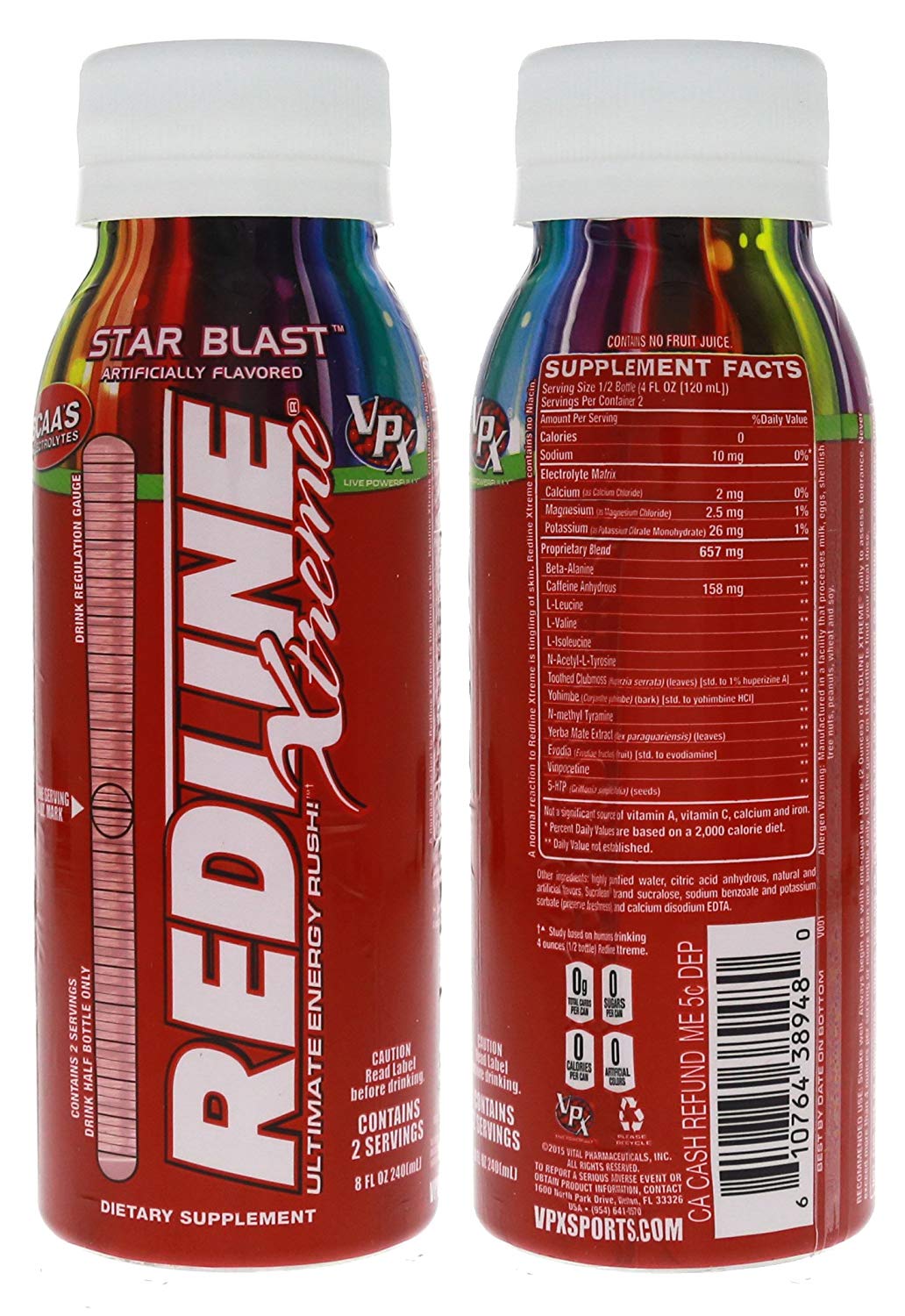

Results: TT performance did not differ across conditions (CON: p =. Session RPE and session Affect were obtained post TT.
#REDLINE ENERGY DRINK CAFFEINE AMOUNT TRIAL#
Time, heart rate, RPE, and affect were recorded at 500-m intervals during the time trial (TT). Subjects were then randomly assigned to supplement with 500 ml of a commercially available ED, CAF (160 mg), TAU (2g) and GLU (54g) 60 minutes before completing a 5KTT on a treadmill separated by seven days. In the first session subjects completed the 5KTT without consuming a drink (control trial-CON). Methods: Twenty recreational endurance runners (10 men, 10 women, 21.3 ± 2.2 years) participated in a double blind, placebo controlled, repeated measures study. Introduction: The purpose of this study was to evaluate the independent and combined effects of energy drink (ED) functional ingredients, caffeine (CAF), taurine (TAU), and glucose (GLU) on 5-km running time trial (5KTT) performance in recreational endurance runners. Also, improvement in agility and reaction time favoring caffeine-supplemented group occurs after 60 minutes of caffeine ingestion. Agility and reaction time is seen to improve when an athlete is supplemented with caffeine at a dosage of 3 mg/kg of body mass and 6 mg/kg of body mass, respectively. To back up the results presented in this study, more research into the effects of caffeine supplementation on non-athlete performance is required.Ĭaffeine supplementation is efficient in improving the reaction time and agility of an athlete. There was a significant effect on reaction time (SMD: −0.40 95% confidence interval: −0.76, −0.04 P = 0.03) and agility (SMD: −0.36 95% confidence interval: −0.66, −0.07 P = 0.02) after 60 minutes of caffeine intake favouring the experimental group. Our meta-analysis showed that there is a significant effect, immediately (SMD: 0.82 95% confidence interval: 0.27, 1.37 P = 0.003) and after 60 minutes (SMD: 0.26 95% confidence interval: 0.05, 0.47 P = 0.02) of caffeine intake on jump height favouring the placebo group. A random-effect model was used in this meta-analysis to analyze the effect of caffeine on athletic performance using the standardized mean difference with a 95% confidence interval. Thirty articles were included in this review after the removal of duplicates and applying exclusion criteria. Studies were excluded if: 1) it was conducted before January 2010 2) caffeine was given along with other substance/exercise 3) only abstract was available 4) it included non-healthy athlete 5) the population was not involved in any kind of sports 6) Pedro score < 7. Studies were searched in various electronic databases, including Web of Science, PubMed, Pedro, and CINAHL.

To examine the efficacy of caffeine on athletic performance, also to establish the most effective dose and form of caffeine intake that is needed to bring about a positive effect in performance. Further their significant (p<0.001) antidepressant property was estimated both in tail suspension and forced swim tests along with significant cognitive property. Results: In-silico study revealed the enhanced agonistic binding of the major common components of the EDs to D2 and serotonin receptors. Further, their mechanism of action was evaluated by estimating their effect on brain dopamine and serotonin level. Their cognition effect was assessed by using Y-maze apparatus. The antidepressant study of energy drinks was carried out following FST (Forced Swim Test) and TST (Tail suspension test) methods. Methodology: The study started with in-silico studies to get information about the neurological receptor binding of the major and common chemical components of the EDs. The most typically used EDs have been selected for the study such as Red Bull, Monster and Enerzal for the present research. Though the caffeine content of EDs is creating health consequences on excess consumption, the present study targets their health benefits on central nervous system (CNS) focusing antidepressant and cognitive potentiality. Objective: In the present society, the energy drinks (EDs) are used by general public and mainly by the sports persons.


 0 kommentar(er)
0 kommentar(er)
